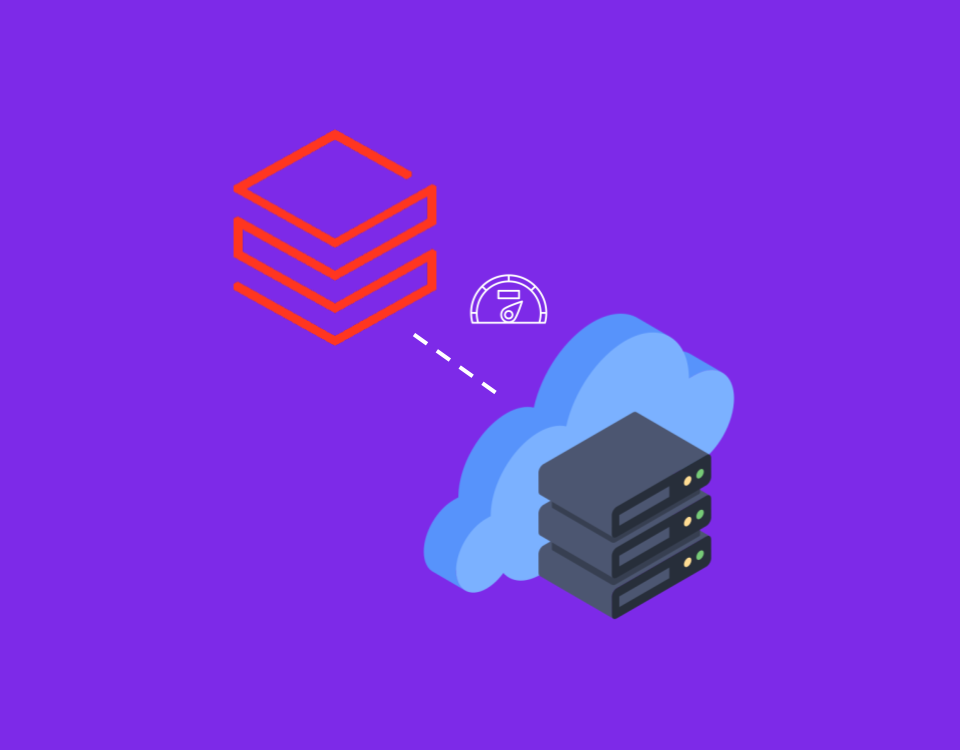Cloud computing is driving innovation in the retail industries at an increasingly accelerated pace, from the big players in the upper right to small local independent companies. The importance of the cloud is growing exponentially.
Retailers need to be more supple, but many are impede by in-house IT systems that are difficult to integrate with new technologies and expensive to run.
Data has become part of a much larger process when we think of competition. Managing, storing, and analyzing data is a comprehensive task. Businesses are rapidly deploying cloud technology to effectively manage and process data and get real-time insights. To continue to be successful in this highly competitive industry, retailers need to focus on expanding their reach to multi-store customers and supply chain management to provide a unique customer experience
In the current situation, every tech giant is curious to ask if companies are able to manage the complex and ever-changing cloud landscape?
The reason why the same curiosity arises by us because, we help retail businesses to plan, deploy, and implement cloud migration. Utilizing cloud services rapidly pays for itself by saving time, money, and a by Big Data alleviating technical burden almost overnight. As a managed migration specialist, Cloudaeon ensures the of “moving to the cloud” is straightforward, tightly managed, and inexpensive.
The integration of cloud computing services in retail not only reduces IT costs but also simplifies work processes and improves efficiency and end-user experience.
Main Benefits of Cloud Computing in retail industries:
- Enhanced channel operation
Retailers who have not yet turned to the cloud are still working on outdated systems and working models that keep pace with current market trends. Cloud solutions can simplify the system and provide a more personalized customer experience.
Moving to the cloud makes it easier to provide consistent customer experience needed by users.
- Higher supply chain availability
With the help of cloud computing, retailers can achieve far better visibility in the entire enterprise supply chain, because every part of the business is connected to the cloud.
This means less inventory, optimized inventory, and allows retailers to collect inventory data in real-time to ensure they are optimally in the supply chain.
- Better business efficiency
Retailers produce large amounts of data. However, traditionally, this data has been fragmented into functional silos and various IT systems, making it difficult to monitor your retail business and performance.
By moving to the cloud, you can download this IT silo and enable a smoother flow of information throughout the company.
- Secure and reliable
The biggest concern for retailers talking about cloud computing is security and reliability. Retailers want to know whether their data is safe when hosting in the cloud and how reliable the cloud computing infrastructure is.
Cloud computing offers a higher level of accessibility than is normally achieved on-premises.
In terms of security, the cloud creates new security concerns, but data stored in the cloud is usually safer than data stored locally on your own server.
- Greater Scalability
One of the biggest benefits of cloud computing is its scalability. With cloud services, they can easily expand and reduce their services for a short time when demand is reduced. Cloud scalability also provides retailers with unique opportunities to test new sales tactics and reorganize their business with little investment.
- Scalable
Amazon CloudSearch offers strong automated scaling for all search domains. If your request data or volume changes, Amazon CloudSearch can increase or decrease your domain’s search resources as needed. You can control zoom if you know that you need more bulk upload capacity or expect increased search traffic.
Your IT system should be able to easily handle the increased variability of system requirements. Cloud computing helps you do this cost-effectively, so you can reduce and quickly increase resource requirements for your actual use if needed.
From CAPEX to OPEX
In today's challenging retail industry, investment spending is under extraordinary control. This makes it difficult to justify IT investment when money can be spent on areas with clearer benefits, such as store renovations. One of the great advantages of cloud computing is that new IT projects can be funded from your operating budget, allowing them to launch under much less scrutiny.
Cloud computing services take the business world by the superstorm, and cloud acceptance statistics tell the same story.
Here is a taste from various sources of what’s to come:
- The market for public cloud services is expected to reach $ 623.3 billion worldwide in 2023.
- On average organizations leverage almost 5 different cloud platforms.
Some fascinating cloud adoption facts:
- The global market for public cloud services is expected to reach $ 266 billion by 2020.(Source: Gartner)
This is in line with the estimated 17.3% growth from 2018. According to Gartner's forecast, Infrastructure as a Service (IaaS) will be the fastest-growing market segment with an estimated growth of 24%. It is estimated that it will reach $ 50 billion by the end of 2020, compared with $ 31 billion in 2018.
Gartner also estimates that by 2022, 90% of companies that buy public IaaS in the cloud will do so through integrated IaaS and Platform as a Service (PaaS).
- By 2020, 83% of the company's workload will be in the cloud.(Source: Forbes)
This forecast assumes that 41% of the company's workload will run on the public cloud platform in 2020. The other 20% will be based on private clouds, while 22% will be based on the introduction of hybrid clouds.
Other data cited by Forbes shows that only 27% of the workload will be based on 2020. This will cause an absolute reduction of 10% in just one year - the same as 37% in 2019.
Cloud Adoption In Retail Industry
- 70% of experts estimate cloud to be an important factor in the retail industry by 2020.(Source: The Economist Intelligence Unit)
Cloud technology makes retail more user friendly. This is mainly used to increase access, lower prices and lower costs for customers. 70% of experts say cloud will be an important factor in the industry in 2020, and another 23% say it will be a moderate factor. Over the past 5 years, the importance of cloud services in retail has increased five-fold.
How important is the cloud for retail support? 58% of experts said it was important "to reduce the cost of goods and services", the value of 49% "to help new companies grow" and 48% to "increase access to retail".
The future of cloud computing in retail
Over the next three years, 75 percent of existing non-cloud applications will be moved to the cloud. Today's computer landscape shows that companies not only moving to the cloud but use more than one cloud environment. Even then, the journey to the cloud has just begun for many people and has evolved from lower-class infrastructure as a service to higher business value.




